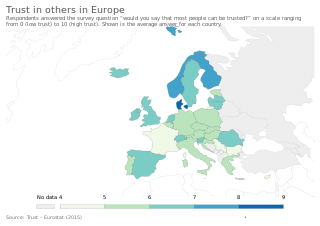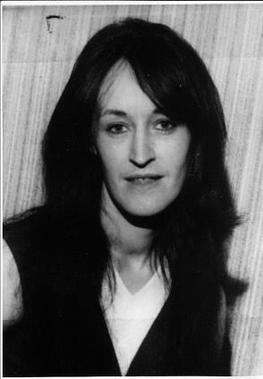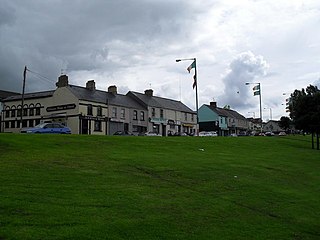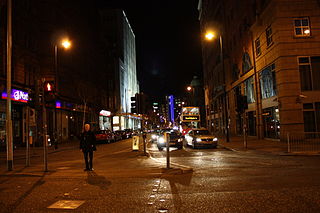Related Research Articles
In ordinary language, a crime is an unlawful act punishable by a state or other authority. The term crime does not, in modern criminal law, have any simple and universally accepted definition, though statutory definitions have been provided for certain purposes. The most popular view is that crime is a category created by law; in other words, something is a crime if declared as such by the relevant and applicable law. One proposed definition is that a crime or offence is an act harmful not only to some individual but also to a community, society, or the state. Such acts are forbidden and punishable by law.

Vigilantism is the act of preventing, investigating and punishing perceived offenses and crimes without legal authority.

The Loyalist Volunteer Force (LVF) was an Ulster loyalist paramilitary group in Northern Ireland. It was formed by Billy Wright in 1996 when he and his unit split from the Ulster Volunteer Force (UVF) after breaking its ceasefire. Most of its members came from the UVF's Mid-Ulster Brigade, which Wright had commanded. In a two-year period from August 1996, the LVF waged a paramilitary campaign in opposition to Irish republicanism and the Northern Ireland peace process. During this time it killed at least 14 people in gun and bomb attacks, almost all of them Catholic civilians killed at random. The LVF called off its campaign in August 1998 and decommissioned some of its weapons, but in the early 2000s a loyalist feud led to several killings. Since then, the LVF has been largely inactive, but its members are believed to have been involved in rioting and organized crime. In 2015, the security forces stated that the LVF "exists only as a criminal group" in Mid-Ulster and Antrim.

The Ulster Volunteer Force (UVF) is an Ulster loyalist paramilitary group based in Northern Ireland. Formed in 1965, it first emerged in 1966. Its first leader was Gusty Spence, a former Royal Ulster Rifles soldier from Northern Ireland. The group undertook an armed campaign of almost thirty years during The Troubles. It declared a ceasefire in 1994 and officially ended its campaign in 2007, although some of its members have continued to engage in violence and criminal activities. The group is a proscribed organisation and is on the terrorist organisation list of the United Kingdom.

The Ulster Defence Association (UDA) is an Ulster loyalist paramilitary group in Northern Ireland. It was formed in September 1971 as an umbrella group for various loyalist groups and undertook an armed campaign of almost 24 years as one of the participants of the Troubles. Its declared goal was to defend Ulster Protestant loyalist areas and to combat Irish republicanism, particularly the Provisional Irish Republican Army (IRA). In the 1970s, uniformed UDA members openly patrolled these areas armed with batons and held large marches and rallies. Within the UDA was a group tasked with launching paramilitary attacks that used the cover name Ulster Freedom Fighters (UFF) so that the UDA would not be outlawed. The British government proscribed the UFF as a terrorist group in November 1973, but the UDA itself was not proscribed until August 1992.
A wrong or wrength is an act that is illegal or immoral. Legal wrongs are usually quite clearly defined in the law of a state or jurisdiction. They can be divided into civil wrongs and crimes in common law countries, while civil law countries tend to have some additional categories, such as contraventions.
The Red Hand Defenders (RHD) is an Ulster loyalist paramilitary group in Northern Ireland. It was formed in 1998 by loyalists who opposed the Belfast Agreement and the loyalist ceasefires. Its members were drawn mostly from the Ulster Defence Association (UDA) and Loyalist Volunteer Force (LVF). The name had first been used by Red Hand Commandos dissident Frankie Curry in 1996 and he was the leading figure in what was a somewhat unstructured organization until he was killed in 1999. It is named after the Red Hand of Ulster.

Trust is the belief that another person will do what is expected. It brings with it a willingness for one party to become vulnerable to another party, on the presumption that the trustee will act in ways that benefit the trustor. In addition, the trustor does not have control over the actions of the trustee. Scholars distinguish between generalized trust, which is the extension of trust to a relatively large circle of unfamiliar others, and particularized trust, which is contingent on a specific situation or a specific relationship.

Poleglass is an area of west Belfast in Northern Ireland. It is the name of a townland, a modern electoral ward, and a working class suburb. The townland is situated in the civil parish of Derriaghy and the historic Barony of Belfast Upper. It is mainly an Irish nationalist area.

The Shankill Road bombing was carried out by the Provisional Irish Republican Army (IRA) on 23 October 1993 and is one of the most well-known incidents of the Troubles in Northern Ireland. The IRA aimed to assassinate the leadership of the loyalist Ulster Defence Association (UDA), supposedly attending a meeting above Frizzell's fish shop on the Shankill Road, Belfast. Two IRA members disguised as deliverymen entered the shop carrying a bomb, which detonated prematurely. Ten people were killed: one of the IRA bombers, a UDA member and eight Protestant civilians, two of whom were children. More than fifty people were wounded. The targeted office was empty at the time of the bombing, but the IRA had allegedly realised that the tightly packed area below would inevitably cause "collateral damage" of civilian casualties and continued regardless. However, the IRA have denied this saying that they intended to evacuate the civilians before the explosion. It is alleged, and unearthed MI5 documents appear to prove, that British intelligence failed to act on a tip off about the bombing.
Martin McGartland is a former British informer who infiltrated the Provisional Irish Republican Army (IRA) in 1989 to pass information to RUC Special Branch.
Diego Gambetta is an Italian-born social scientist. He is a Carlo Alberto Chair at the Collegio Carlo Alberto in Turin. He is well known for his vivid and unconventional applications of economic theory and a rational choice theory approach to understanding a variety of social phenomena. He has made important analytical contributions to the concept of trust by using game theory and signalling theory.
Punishment and Social Structure (1939), a book written by Georg Rusche and Otto Kirchheimer, is the seminal Marxian analysis of punishment as a social institution. It represents the "most sustained and comprehensive account of punishment to have emerged from within the Marxist tradition" and "succeeds in opening up a whole vista of understanding which simply did not exist before it was written". It is a central text in radical criminology and an influential work in criminological conflict theory, cited as a foundation text in several major textbooks. It offers a broader (macrosociological) level of analysis than many micro-analyses that focus on the atomized and differentiated individual.
The Chlorane Bar attack was a mass shooting at a city centre pub on 5 June 1976 in Belfast, Northern Ireland. It was carried out by the Ulster Volunteer Force (UVF), an Ulster loyalist paramilitary organisation, apparently in retaliation for the Provisional IRA bombing attack on the Times Bar on York Road, in which two Protestant civilians were killed. In the Chlorane attack, five civilian men were killed; three Catholics and two Protestants. The gunmen were militants from the UVF Belfast Brigade's Shankill Road battalion. The assault was a joint operation by the platoons based at the Brown Bear and the Windsor Bar, drinking haunts in the Shankill Road district frequented by UVF members.

Criminology is the interdisciplinary study of crime and deviant behaviour. Criminology is a multidisciplinary field in both the behavioural and social sciences, which draws primarily upon the research of sociologists, political scientists, economists, legal sociologists, psychologists, philosophers, psychiatrists, social workers, biologists, social anthropologists, scholars of law and jurisprudence, as well as the processes that define administration of justice and the criminal justice system.

The murder of Ann Ogilby, also known as the "Romper Room murder", took place in Sandy Row, south Belfast, Northern Ireland on 24 July 1974. It was a punishment killing, carried out by members of the Sandy Row women's Ulster Defence Association (UDA) unit. At the time the UDA was a legal Ulster loyalist paramilitary organisation. The victim, Ann Ogilby, a Protestant single mother of four, was beaten to death by two teenaged girls after being sentenced to a "rompering" at a kangaroo court. Ogilby had been having an affair with a married UDA commander, William Young, who prior to his internment, had made her pregnant. His wife, Elizabeth Young, was a member of the Sandy Row women's UDA unit. Ogilby had made defamatory remarks against Elizabeth Young in public regarding food parcels. Eight weeks after Ogilby had given birth to Young's son, the women's unit decided that Ogilby would pay for both the affair and remarks with her life. The day following the kangaroo court "trial", they arranged for the kidnapping of Ogilby and her six-year-old daughter, Sharlene, outside a Social Services office by UDA man Albert "Bumper" Graham.

The Springfield Road is a residential area and road traffic thoroughfare adjacent to the Falls Road in west Belfast. The local population is predominantly Irish nationalist and republican. Along parts of the road are several interface area with the neighbouring Ulster loyalist areas of the Greater Shankill. The Springfield Road includes the Ballymurphy and New Barnsley districts and is overlooked by Black Mountain and Divis.
James Densley is a British-American sociologist and Professor of Criminal Justice at Metropolitan State University. He is best known as co-founder of The Violence Project and as co-author of the bestselling book, The Violence Project: How To Stop a Mass Shooting Epidemic. Densley has also published extensively on street gang issues and has been described as "among the most accomplished rising leaders of modern gang research in criminology." He was one of the top 250 most cited criminologists in the world in 2019.

The Top of the Hill bar shooting, or Annie's Bar massacre, was a mass shooting in Derry, Northern Ireland on 20 December 1972, during the Troubles. Five civilians were killed when members of the Ulster Defence Association (UDA), a loyalist paramilitary group, opened fire on the customers in a pub frequented by Catholics.

Since the early 1970s, extrajudicial punishment attacks have been carried out by Ulster loyalist and Irish republican paramilitary groups in Northern Ireland. Attacks can range from a warning or expulsion from Northern Ireland, backed up by the threat of violence, to severe beatings that leave victims in hospital and shootings in the limbs. The cause of the attacks is disputed; proposed explanations include the breakdown of order as a result of the Northern Ireland conflict, ideological opposition to British law enforcement, and the ineffectiveness of police to prevent crime.
References
- ↑ "Heather Hamill". Department of Sociology, Oxford University. Retrieved 7 January 2020.
- ↑ "Recognition of Distinction" (PDF). University of Oxford Gazette. 154 (5397): 60–61. 12 October 2023. Retrieved 13 May 2024.
- ↑ Fararo, Thomas J. (3 October 2007). "Streetwise: How Taxi Drivers Establish Their Customers' Trustworthiness (review)" . Social Forces. 86 (1): 363–364. doi:10.1353/sof.2007.0097. ISSN 1534-7605. S2CID 201762763.
- ↑ Uslaner, Eric M. (1 February 2007). "Book Review: Streetwise: How Taxi Drivers Establish Their Customers' Trustworthiness". Work and Occupations. 34 (1): 104–106. doi:10.1177/0730888406296934. ISSN 0730-8884. S2CID 153319299.
- ↑ Jones, RG (2006). "Streetwise: How Taxi Drivers Establish Their Customers' Trustworthiness". Personnel Psychology. 59 (1): 274–275.
- ↑ Sztompka, Piotr (2006). "Streetwise: How Taxi Drivers Establish Their Customers' Trustworthiness – Diego Gambetta and Heather Hamill". International Journal of Urban and Regional Research. 30 (4): 978–979. doi: 10.1111/j.1468-2427.2006.00704_7.x . ISSN 1468-2427.
- ↑ "The Hoods: Crime and Punishment in Belfast". Times Higher Education (THE). 10 March 2011. Retrieved 7 January 2020.
- ↑ Stout, Brian (1 December 2011). "Hamill, H. (2011).The Hoods: Crime and Punishment in Belfast" . Policing: A Journal of Policy and Practice. 5 (4): 380–381. doi:10.1093/police/par041. ISSN 1752-4512.
- ↑ McDonald, Henry. "Beyond the pale: a city underclass bent on anarchy". Belfast Telegraph. Retrieved 7 January 2020.
- ↑ Jolicoeur, Jason R. "The Hoods: Crime and Punishment in Belfast". Law and Politics Book Review. American Political Science Association. Retrieved 7 January 2020.